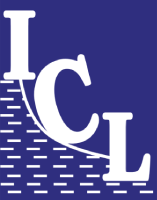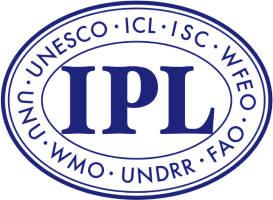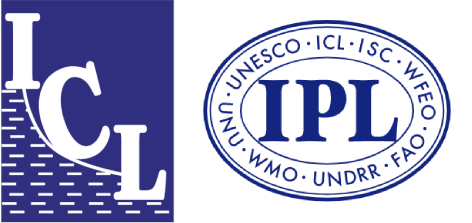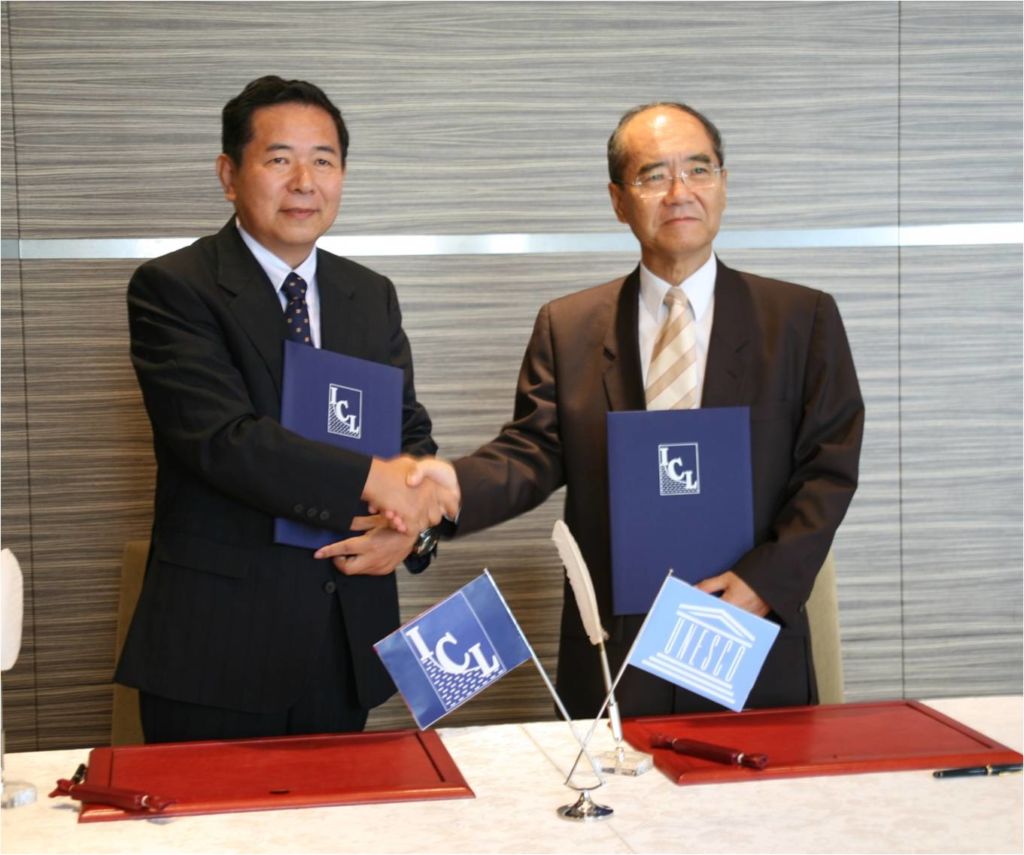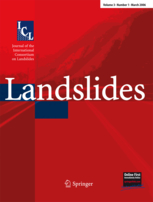International Programme on Landslides (IPL)
A Programme of the ICL for ISDR
The International Programme on Landslides (IPL) was launched to create a new global multidisciplinary programme on landslides at the first session of Board of Representatives of ICL (BOR/ICL) at UNESCO Headquarters, Paris, in November 2002.
The Programme was developed to a global cooperation programme through the thematic session on landslides in the second United Nations World Conference on Disaster Reduction (WCDR), Kobe, Japan in January 2015.
The IPL was defined and established by the 2006 Tokyo Action Plan “Strengthening Research and Learning on Landslides and Related Earth System Disasters for Global Risk Preparedness”, and the output of the Tokyo Round Table Discussion “Strengthening Research and Learning on Earth System Risk Analysis and Sustainable Disaster Management within UN-ISDR as Regards Landslides” held at the United Nations University, Tokyo, in January 2006. In 2006, the International Consortium on Landslides exchanged Memorandum of Understandings to promote IPL with each of ICL supporting organizations: United Nations Educational, Scientific and Cultural Organization (UNESCO), World Meteorological Organization (WMO), Food and Agriculture Organization of the United Nations (FAO), United Nations International Strategy for Disaster Risk Reduction (UNISDR: UNDRR), United Nations University (UNU), International Council for Science (ICSU: ISC), and the World Federation of Engineering Organizations (WFEO).
The ICL together with the Global Promotion Committee of the International Programme on Landslides (GPC/IPL) have organized WLF1-6 and proposed and established the ICL-ISDR Sendai Landslide Partnerships (Sendai Landslide Partnerships) 2015-2025 in 2015 and the Kyoto Landslide Commitment 2020 (KLC2020). After the establishment of KLC2020, the global promotion committee was renamed as the Global Promotion Committee of the International Programme on Landslides and the Kyoto Landslide Commitment (GPC/IPL-KLC).
The IPL and the KLC2020 are managed by the IPL-KLC Global Promotion Committee (GPC/IPL-KLC), which consists of all of ICL member organizations, five UN organizations (UNESCO, WMO, FAO, UNDRR, UNU), two global stakeholders in Science and Technologies (ISC and WFEO), and two international unions in this field: the International Union of Geological Sciences (IUGS) and the International Union of Geodesy and Geophysics (IUGG). The Secretariat of IPL is the IPL World Centre, hosted by ICL.
The activities of IPL include IPL projects, editing and publication of “Landslides: Journal of the International Consortium on Landslides” and the ICL Open Access Book Series “Progress in Landslide Research and Technology (P-LRT)”, identification and coordination of World Centres of Excellence on Landslide Risk Reduction(WCoEs) (16 Centres in 2023-2026), organization of a World Landslide Forum (WLF) every three years (WLF1 at UNU in Tokyo, Japan 2008, WLF2 at FAO in Rome, Italy 2011, WLF3 in Beijing, China 2014, WLF4 in Ljubljana, Slovenia 2017, WLF5 in Kyoto, Japan 2021, and WLF6 in Florence, Italy 2023).
IPL projects are proposed from one or more ICL members by submitting the IPL project proposal form by 30 March every year. Proposals will be evaluated by IPL Evaluation Committee. Proposer or a member of the project is requested to orally explain the project in the GPC/IPL-KLC which will be organized together with the Board of Representatives (BOR) of ICL every year. GPC/IPL-KLC will decide the approval of each proposed project based on the evaluation committee report, oral presentation and discussion. Each IPL Project leader with ongoing status is requested to submit the annual report of the project by 30 March every year.
The World Centres of Excellence on Landslide Risk Reduction (WCoEs) are called and identified at every World Landslide Forum. The application documents are submitted to the ICL secretariat. ICL secretariat will pass feasible applications to the technical evaluation committee (TEC). The leader of proposed WCoE has to attend and explain its proposal at the annual ICL-IPL-KLC Conference. TEC will submit the evaluation result to the IPL-KLC Global Promotion Committee. Members of IPL-KLC Global Promotion Committee will examine each proposal based on the oral presentation by the leader and the evaluation result of the proposed document by TEC and decide the list of candidates of WCoEs. The Secretariat of the IPL-KLC Global Promotion Committee will submit the recommendation of WCoEs to the Independent Panel of Experts (IPE) which consists of non-ICL experts from United Nations Organizations and other Global stakeholders for their evaluation from the wider aspect. IPE will authorize the candidates for WCoEs which are good enough. The list of authorized candidates for WCOEs will be reported to the IPL-KLC Global Promotion Committee and approved by majority of the Committee. The list of WCoEs is announced on the first day of World Landslide Forum.
The core activity of the Kyoto Landslide Commitment 2020 (KLC2020) is the publication of the Open Access Book Series P-LRT. Progress in the landslide research and technology within the Landslide Community should be well disseminated to practitioners, policymakers and people living in the mountainous communities free of charge. Funding is necessary to publish the open access book series. Then, the ICL and GPC/IPL-KLC have called for the KLC2020 official promoters who provide the recent landslide research and progress of technology to P-LRT, and financially support the publication of P-LRT for the global promotion of understanding and reducing landslide disaster risk for KLC2020. The list of the current KLC2020 official promoters is shown in the structure of the GPC/IPL-KLC.
The ICL and the GPC/IPL-KLC request powerful organizations to join the KLC2020 official promoters by filling and sending the registration form attached below.
The ICL and the KLC2020 secretariat request active landslide researchers and engineers to contribute their recent research and technology to the ICL open access book series “Progress in the landslide research and technology.” It is your contribution to the KLC2020, a commitment to the Sendai Framework for Disaster Risk Reduction 2015-2030 and 2030 Agenda Sustainable Development Goals (SDGs) through landslide disaster risk reduction. The application form for the articles is attached below.
